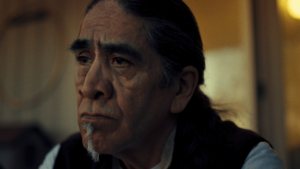Nancy Buirski, director, The Loving Story
After four extraordinary days in Colombia, I may just be starting to get a feel for this disarmingly complex place. Friendly, welcoming, laid back in most respects, these people wrestle with powerful issues, many surfacing during our screenings in unexpected ways. With the Film Forward team, I’ve traveled with The Loving Story first to Bogota, then to Bucaramanga, then to Medellin—urban to rural and back to relatively urban again. We’ve visited public and private schools and, most notably, a school serving children of workers, many of whom work the land outside of Bucaramanga high in the mountains.
The community is called La Mesa de Los Santes and if saints do exist, I believe one could find them here. Proudly dressed in their school uniforms funded by the state, the pre-teens who watched The Loving Story seemed restless at first. But it was these children who responded with thoughts revealing and true. Indignant that any would presume to tell someone who they may or may not love, one young girl reminded us that we are all the same—under one God. Given that those who persecuted Mildred and Richard Loving—a white man who loved and married a part black, part Native American woman—typically invoked God in doing so, this plain and principled statement, said without irony, was especially poignant.
Yet here are people who rarely discuss racism, some suggesting it does not even exist. One wonders why one sees so few African-Colombians (of which there are many in this country) in the schools we have visited. We are learning of the chronic segregation of this part of the population. Parents will not allow their children to inter-marry—no laws are needed against miscegenation as they existed in Mildred and Richard Lovings’ day, just disapproval in this patriarchal society. In the upper class university we visited today in Medellin, students implied that racism was not an issue until one young woman bravely stood up and confessed that it is not discussed because they are afraid—afraid of violence that would result if they spoke up, protested, tried to change things. Violence from gangs. As they talked about this—finally—I was haunted by images of Ku Klux Klan and thought what a powerful means of suppression gangs can be. The discussion ended as the one African in the audience made plain that any racism, no matter how subtle, is violence.
Will this simple film about love and tolerance leave a lasting impression in Colombia?







